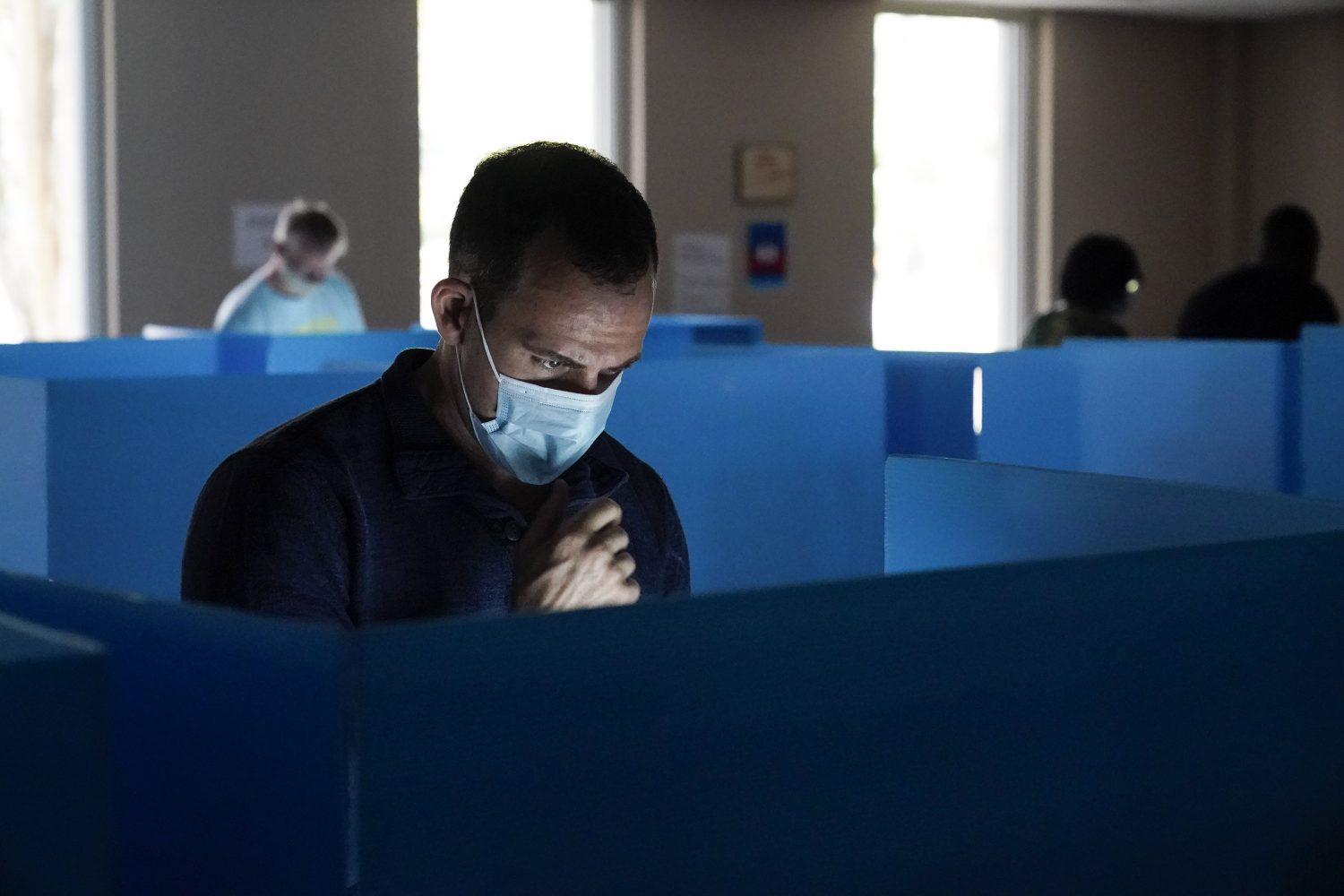(RNS) — Rabbis around the United States are joining with other clergy to help protect voting places on Election Day, with at least one group of Jewish leaders training to offer a ministerial presence in case violence erupts before or after results are announced.
The trainings are led by T’ruah, an organization that has long mobilized rabbis for political and social justice protests. The group’s executive director, Conservative Rabbi Jill Jacobs, explained that her group is preparing rabbis to calm situations or “just talk everybody off the ledge” if moments of potential violence erupt.
“We’re very much hoping that all of the preparation is for naught, but we’d rather be prepared than not,” she said.
Jacobs’ group is experienced with street demonstrations, including those that have turned violent. Members of T’ruah were arrested for demonstrating outside Trump Tower shortly after President Donald Trump was inaugurated in 2017, and others were present during clashes between white supremacists and counterprotesters in Charlottesville, Virginia, that summer.
For Election Day this year, T’ruah, based in New York, is partnering with groups such as Election Defenders and the Faith Matters Network, hoping to ready members of their communities and organizations for a delay of days or weeks before winners are declared in some races due to the record use of mailed ballots.
“That’s really about education: What it means to wait for the votes, what the different possibilities are of what could happen during the election and post-election, and to prepare people for the election not being over on Nov. 3,” said Jacobs.
But Jacobs and others said they are also steeling themselves for trouble, in reaction to election results or over any attempts to toss out votes.
More on Broadview:
- U.S. ‘movement chaplains’ provide spiritual care for activists
- The U.S. election’s most crucial faith group is one that you’ve never heard of
- Black churches in U.S. mobilize against alleged voter suppression
“We’re preparing for a potential violence following the election, particularly if there are protests, counterprotests — including white nationalist violence, which is very much expected,” Jacobs said.
T’ruah is one of several faith groups offering some form of election site protection this year. In Georgia, clergy will act as “poll chaplains” on Election Day, and elsewhere a coalition of white and Black clergy is leading a “lawyers and collars” movement that will position clergy and laypeople at polls to answer questions and observe the vote.
Jacobs is one of more than 1,000 faith and community leaders from both sides of the political aisle who signed on to a letter demanding a “free and fair” election conducted “without interference, suppression, or fear of intimidation.”
Among those who have trained as a poll chaplain is Rabbi Lauren Henderson, who leads Congregation Or Hadash near Atlanta. “What I found very helpful were some very concrete suggestions for how we as rabbis can support the democratic process and hold our leaders accountable to ensure that all votes are counted,” said Henderson.
While ready to respond to anything, Jacobs and her group are also prepping to help ensure that potential street protests stay peaceful.

“Clergy can serve as chaplains on the street just like we serve as chaplains in hospitals or in prisons or in hospices,” she said. “Just as there are medics taking care of people’s physical needs (during a protest) — which of course are primary if somebody is physically hurt — there should also be clergy who are there to help people with their spiritual needs and to process any difficult situations they witness.”
“Movement chaplains” and faith leaders serving similar roles were a regular sight during demonstrations this summer in response to the May killing of George Floyd by Minneapolis police. Clergy were among those who were forcibly cleared from Lafayette Square in front of the White House in June.
“One of the big roles I see for myself as a rabbi is just to help lower the temperature,” said Henderson.
It’s a role other members of T’ruah know well. When a white supremacist drove a car into a column of counterprotesters, killing demonstrator Heather Heyer in Charlottesville, T’ruah rabbis counselled people who witnessed the attack.
“Just the fact that they were there meant that they were able to be disaster chaplains in the moment,” Jacobs said.
In Charlottesville, the unruly crowd infamously shouted anti-Semitic slogans while marching with torches, raising the possibility that rabbis on scene to quell tensions could become a target.
But Jacobs and Henderson said they would not be cowed.
“One of my teachers, Rabbi Shai Held, talks about religious courage and how faith gives us the strength to run toward the thing that we might be otherwise totally compelled to run away from,” Henderson said.
She added: “My rabbinate, for me, is very much about presence, showing up and trying to figure out where I’m called. Sometimes that call is very literal: people who call me on the phone and say, ‘Hey, can you show up at this?’ Then I discern for myself, ‘OK, is, does this feel right?’ And this feels like a moment of being called to witness.”
















Off topic, but I doubt there will be civil unrest. Most of the important Democrats left the country when Trump was elected in 2016. (Or am I mistaken?)….
I see the fall of Rome being prophesized here.